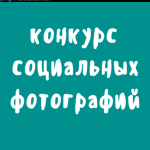Germany and Kazakhstan: Problems and Prospects for Economic Co-operation
Galiya Dzhunusaliyeva, Head of the German Economic Office in Kazakhstan, Answers Questions from our magazine
Could you please tell us about the activities of German Economic Offices abroad and in Kazakhstan?
The Federal Government has set up and developed a network of German Chambers of Commerce abroad to stimulate foreign economic relations. These chambers comprise individuals, companies and organizations from Germany and the countries where they are located. Organizational and financial management and funding are handled by the Industrial and Commercial Association of Germany (DIHK) and the Economic and Labour Ministry. Currently DIHK comprises 83 commercial and industrial chambers uniting 3.6m companies on a federal scale. DIHK represents the interests of politically orientated businesspeople and the German economy as a whole. As the headquarters of the network of chambers of industry and commerce, its main objective is to establish contacts between German and foreign companies and organize various events for local and foreign political groups, non-party funds and other public associations. In addition, DIHK collects information about the political situation and political and economic development of partner countries and conducts regular surveys on the structure of foreign chambers of commerce. DIHK holds standard and advanced educational training for employees within the entire system of chambers, also for foreign diplomats. The Association lobbies for guaranteed export loans and export financing and develops concepts for German companies to participate in exhibitions, fairs and other events.
As the first stage in setting up foreign chambers in NIS, German Economic offices are founded, staffed by locals. In the second stage, a Delegate Representative Bureau is established. The only difference between these and the foreign chambers is that the former are not guided by the Board and members of the Chamber in their activities. It is crucial that all three links are authorized as representative offices of the German economy, supervised by DIHK and funded by the German Economic and Labour Ministry.
The activities of the offices cover all fields of foreign economic relations, including supplying information and establishing contacts at various levels. Following this model, economic enquiries received by German diplomatic missions abroad are filed directly with German economic offices, if present in the country.
In Kazakhstan, the German Economic Office has been operating since 1994. It was established under the agreement between Germany and Kazakhstan of 22nd September 1992 on large-scale co-operation in the spheres of economy, industry, science and engineering. In addition, a contact bureau for the Kazakhstani office began work in Astana on 1st October 1999. We are also considering opening a contact bureau in Atyrau.
Does the Office provide real assistance to German and Kazakhstani companies?
Each week our office receives over 100 enquiries from German and local companies and we always reply to them. The queries relate to practical aspects and provision of information on various sectors of the German economy, searches for business partners and other matters. The office holds a number of co-operation exchanges for local and Germany businessmen each year. Currently work is being done to support Kazakhstani entrepreneurs who wish to visit industrial fairs in Germany. Beginning on 1st January 2003 the Office also acts as a contact bureau for the Association of German Machine Tool Manufacturers. Together with the German Embassy to Kazakhstan, the Office is preparing programmes for a visit by German economic delegations, and participating in organizing Kazakhstan-focused awareness activities in Germany.
How have Kazakhstani–German economic relationships developed over recent years? Which sectors of Kazakhstan’s economy are the most promising for German capital?
There is a particular feature of the German economy: the share of small and medium-sized businesses makes up 80% of its total structure. German companies are traditionally engaged in machinery engineering, machine tool manufacturing, and the processing industry. However, Germany largely lacks sizeable companies operating in the extractive or the oil and gas industries. Therefore German companies arriving in Kazakhstan have had to make it a priority to find consumers for their machinery, equipment, electronic, electric engineering and chemical products. They have offered their services in creating industrial and production infrastructure, telecommunications, road construction, processing of agricultural produce and light industry. As an export-oriented country, Germany is primarily interested in the CIS markets for selling its products. This is also true of Kazakh-German economic relations, because Germany is a key trading partner for Kazakhstan. This is proved out by last year’s indices: the exports from Germany to Kazakhstan grew by over 15%.
As for direct investment, as of 1st January 2003 367 joint ventures and 100%-German-owned companies were registered in Kazakhstan. 200 of these are currently active in the market. In addition, some 120 representative offices and branches of German companies are operating in the country, with the majority of them based in Almaty. Many German companies work through Kazakhstani partners, authorising them to sell their products.
The import substitution programme that is currently being implemented in Kazakhstan may provide a good opportunity for German producers of machinery and technologies, because Kazakhstan will need up-to-date equipment for producing high quality goods with a competitive edge. I believe that, as the industrial potential of Kazakhstan is enhanced, the country will become more attractive for German investment. In this connection, finding a reliable partner in Kazakhstan is very important for small and medium-sized companies from Germany (which produce more than three-quarters of the GNP). Therefore I believe that strong state support is needed to form a new type of Kazakhstani businessperson. Much has been done in this regard, but the results achieved have not covered the costs of the efforts.
What does Kazakhstan need to take into account when planning co-operation with Germany?
It is important to remember that it is the extractive industries which are developing most actively in Kazakhstan at the current time. Since the extractive sector is not a key component of the German economy, this hinders access to this market by German companies. Also, small and medium-sized German companies are not interested in large, long-term investments with no clear guarantees. There are also certain problems on the part of Kazakhstani partners with financing joint projects.
Among the negative factors that project an international image of Kazakhstan as a country with high business risks are poor co-ordination between state authorities, large amounts of red tape, partiality in resolving business problems, and contradictions between legislative acts and instructions issued by various government agencies. At the same time, the low awareness of German companies about business opportunities in Kazakhstan is another impediment to bilateral economic relations.
As a country with a narrow market, Kazakhstan needs to develop regional co-operation with neighbouring Central Asian states. The lifting of trade and customs barriers, co-ordination of activities between authorized bodies, and co-operation and possible unification of the customs and tax systems may make the regional market attractive not only to commercial enterprises, but also for long-term investment.
Due to the economic decline in Europe and the lower demand (for various reasons) for German products in the United States (which has been the key partner of the German machine engineering industry), the Russian and Chinese markets are becoming increasingly attractive to German companies. Hence the necessity for not merely sticking to bilateral Kazakh-German relations, but also for making full use of the transit potential of Kazakhstan against the background of the booming interest of German business in the markets of countries adjoining Kazakhstan.
What forms of co-operation are the most promising for Kazakhstan and Germany, in your opinion?
It is crucial to differentiate between the spheres of co-operation, taking account of the details of both countries’ economies. Germany is not an investor that wishes to provide multi-billion investments in large projects. Therefore it is essential to define projects for bilateral co-operation that will be economically feasible and involve not only large concerns, but as many small and medium-sized businesses as possible. For instance, German companies have great opportunities in infrastructure projects, since Kazakhstan considers this to be a priority sector. It is necessary to focus on management development, vocational training and qualification of local specialists. These are the areas where Germany has always provided considerable assistance and will do in the future. Kazakhstan and Germany may also profit from mutually beneficial technological co-operation. An increasing number of Kazakhstani businessmen need to take part in industrial fairs in Germany and other European countries. This will help them to study new technologies and establish contacts with potential partners.
We invite Kazakhstani businessmen to visit the website www.e-trade-center-com where they can post their partner-search information free of charge. These measures will assist them in finding partners in all the countries where German Economic Offices are located (over 80 offices and 120 bureaux employing some 5,000 of our colleagues).
Are there any insurmountable obstacles in the way of German investment bound for Kazakhstan?
Certainly, there are a number of unsolved problems, but these cannot be considered insurmountable or typical of Kazakhstan alone. They are quite common difficulties reflecting the problems of growth and development of Kazakhstani business. For example, Kazakhstani entrepreneurs need to focus more on business ethics, loyalty to agreements, understanding their partners’ interests, fulfilment of contract obligations—all the things that create an atmosphere of trust between two parties. This largely depends on the activities of unions and associations of businesspeople. The Kazakhstani Chambers of Industry and Commerce could play an important part in this matter. However they have not become a binding force in the business community for a number of reasons; they cannot yet represent and protect common interests or influence economic development.
Another move is to eliminate all those annoying little barriers which only seem small and insignificant to state officials, but may seem like huge problems for potential investors, especially newcomers. Often it is enough simply to provide an answer in order to eliminate a problem—even if the answer is ‘no’. It is no secret that it can take weeks, sometimes months, to get responses to written queries from Kazakhstani government agencies.
Still, it is almost impossible to articulate any truly insurmountable problem in economic relations between Kazakhstan and Germany.
The current sustainable increase in trade turnover is reinforcing trust between partners, which can only foster investment activities. German firms are taking a closer interest in Kazakhstan, as the country has become the most attractive market in Central Asia. Statements by German businesspeople themselves testify to this.
What is on the Office’s agenda for 2003?
There are many events planned, which proves the growing prospects for mutually beneficial co-operation. Here are just a few of them.
A large group of businessmen from Bavaria will arrive in May 2003 to take part in an Almaty fair. It is also expected that German business delegations will visit Astana and Aktobe, and also fairs in Atyrau and Ust-Kamenogorsk. A co-operation exchange will be organized, hosting a delegation from Baden-W?rttemberg. In September 2003 a German Economy Day will be held; this has been organized in Almaty for the fifth successive year. The Association of German Machine Tool Manufacturers plans to invite Kazakhstan to Bauma, the world’s largest construction fair, which will be held in 2004 in Munich. Kazakh business delegations will visit several sector-specific exhibitions in Germany.
Our office, together with local chambers of industry and commerce, is organizing Kazakhstan awareness days in some of the federal lands of Germany, for instance in Siegen and Leipzig.
We also support a proposal made by the German Ambassador to Kazakhstan Mr. Andreas Koerting, and view it as important. The Ambassador is inviting German firms to participate in his working visits around Kazakhstan. In late March 2003 a visit took place to the Atyrau region, and was said by all participants to have been very fruitful.
I would also like to mention the activities of the Almaty-based German Businesspeople Club. Set up in 1994, it was the initiator and organizer of the German Economy Days in Kazakhstan. These are held with support from the German Embassy and German Economic Office and other organizations. Currently the club numbers 50 members and contributes heavily to the development of Kazakhstani-German economic relations.
As a conclusion, I would like to say that Kazakhstani-German relationships seem to have a stable future and more businesspeople from Germany and other European countries will be coming to the country. In this situation our main task is, as Germans say, ‘to open doors’ in both directions. This is especially important because there has been a clear trend towards increasing interest in German opportunities from Kazakhstani investors.
Table of contents
ChevronTexaco: Turning Partnership into Energy Guy Hollingsworth
Kazakhstan’s Membership of the WTO: Problems, Consequences and Prospects Kenzhegali Sagadiyev
The Use of Subsoil Resources in Kazakhstan. Results for the Year 2002 Elvira Dzhantureyeva
Imstalcon: Domestic Producers Need State Support! Vladimir Khoroshilov
Activities of the Committee for International Affairs, Defence and Security of the Majilis of Parliament, 2002 Sharip Omarov
Germany and Kazakhstan: Problems and Prospects for Economic Co-operation Galiya Dzhunusaliyeva
Investing in Kazakhstan – Opportunities and Threads for German Investors Michael F. Krause
Legal Regulation of Investment Activities in Kazakhstan Askar Batalov
A Summary Review of the Kazakhstan Law On Investments Andrew Griffin, Karen Ostrander-Krug
Tax burden in Kazakhstan Janat Berdalina, Aigul Mustapaeva










